
Art Ben Frost Interview
“Sorry my brain is not working yet,” Ben Frost apologises over a WhatsApp call from a takeaway coffee store in Iceland. It is 9.30am Icelandic time and the Australian composer and director sounds tired. Over the last few days he has been working hard to finish a film of the rehearsals of his new opera that was streamed during the online program of the Holland Festival. Frost had a short night as he was out surfing at midnight with another composer Dustin O’Halloran, who we recently interviewed for 200%. Frost tells me he is going to order a coffee first in order to wake up to discuss a racially-motivated murder that is the subject matter of his new opera ‘The Murder of Halit Yozgat’.
On the 6th April 2006, Halit Yozgat was assassinated in broad daylight in his family’s internet café in Kassel, Germany. In the presence of five people the 21 years old Turkish man was shot twice in the head. During the police investigation into the murder it emerged that an intelligent agent from the State Office for Constitutional Protection of Hesse, Andreas Temme, was present at the shop around the time of the murder. He claimed he didn’t hear the gunshots, didn’t smell the gunpowder and didn’t see the body. It is incredible that in a small space of 77 square meters a murder took place and none of the customers witnessed it.
‘77sqm_9:26min’ is a powerful video reconstruction of the murder case by Forensic Architecture, a multi-disciplinary research group that provides evidence for civil society groups that are confronting state crimes and Human Rights violations worldwide. In the video they investigated Temme’s testimony which became the blueprint of Frost’s opera ‘The Murder of Halit Yozgat’.
 200%: How did you first hear about the story of Halit Yozgat and what made you drawn to it?
200%: How did you first hear about the story of Halit Yozgat and what made you drawn to it?
Ben Frost: My first direct interactions with Forensic Architecture were as the result of my work on Richard Mosse’s ‘Incoming’, that charts the refugee crisis in Europe, the Middle East and North Africa. In 2015 we were working in Lesbos, a Greek island located in the Aegean Sea documenting the unfolding refugee crisis. During our time there we witnessed and recorded the mid-ocean collapse of an overloaded Turkish fishing vessel carrying some 140 refugees. This incident killed more than 40 people, resulting in the single most deadly incident in Europe’s long summer of migration. Our work that day became part of a crucial body of evidence in a case mounted by Forensic Architecture on behalf of the victims.
Around the same time I was discussing the possibility of a new piece in Hannover. I approached Eyal Weizman – the director of Forensic Architecture – with the idea of utilising one of FA’s case studies as a basis for a new work. We quickly zeroed in on the case of Halit Yozgat. It had all the dramatic ingredients for an opera. This story of state sanctioned violence and the persecution of minorities felt to me like a vital story to tell.
200%: Did you immediately envision the story as an opera?
Ben Frost: Yes. The story is about sound and more specifically about the denial of the detectability of a sound. In the original video reconstructions made by Forensic Architecture, this intelligence agent claims that he didn’t hear these two gunshots in the internet café. The fallacy of those statements is perhaps not immediately obvious to the average person, but given the nature of my work, I felt I was in a unique position to demonstrate that the agent’s story doesn’t make any sense. I can place a speaker on the stage in the same proximity to Halit and I can deliver two 140 decibel gunshots out of it. I can show you in the back of an opera house what that sounds like and you can watch a man mere metres away not react at all. An opera can bring a visceral physicality to that story.
 200%: To arrive at something new you deconstruct the mechanism behind the work you have previously done. I can imagine it can be a self-destructive process. Is your self-destructive process frustrating or enlightening?
200%: To arrive at something new you deconstruct the mechanism behind the work you have previously done. I can imagine it can be a self-destructive process. Is your self-destructive process frustrating or enlightening?
Ben Frost: Change is painful right? I get bored with myself very easily. I often look to other people’s work, to other forms of creativity to find a starting point. I have found that the best way to get started is to get as far away from myself as possible. I often start in a space that feels totally alien and foreign to me and then work backwards from there. I’ve been doing this long enough now that no matter what it is I’m dealing with, in the end I’m going to pull it back into a shape that makes sense to me and where I feel there’s a clear sense of authorship there. I don’t find it scary to start wide, I find it quite invigorating to go out of my wheelhouse, thinking, “What am I doing here?” That was definitely true with this piece.
 200%: Did you apply this self-destructive process also on ‘The Murder of Halit Yozgat’ by deconstructing your previous opera ‘The Wasp Factory’?
200%: Did you apply this self-destructive process also on ‘The Murder of Halit Yozgat’ by deconstructing your previous opera ‘The Wasp Factory’?
Ben Frost: When I listen to ‘The Wasp Factory’ now, which was my first piece as a director, and now I think it was very much a reaction to a previous career of making various scores for dance and theatre that were other people’s visions. The music was often constructed and edited to fit the ideas of others. I’ve learnt a lot through that kind of collaboration. When I made ‘The Wasp Factory’ I think I was trying to make a piece of theatre that was pushing back against all of that- theatre in direct servitude to music and sound. I wanted to push the extremities of what sonically possible or even acceptable within the realm of storytelling through a sung text. What ended up being perhaps the problem with ‘The Wasp Factory’ now: it feels very neat to me. It feels like a perfectly constructed machine, and whilst I’m proud of it, in some ways that neatness leaves me a little bit unsatisfied.
What I set out to do with ‘The Murder of Halit Yozgat’ was to make ‘messier’ theatre. Many things left to chance. For example, the choreography of the deconstruction of the set. I left it entirely in the hands of the set designers Lisa Däßler and Mirella Weingarten. I told them “I don’t want to know or be involved in the deconstruction of the set. You pull a wall down when you want to pull a wall down. You remove furniture when you want to remove furniture. We need to start here and need to end there and how you get there, is entirely up to you”. That created a situation where another choreography was planted directly on top of the choreography that I had developed with the cast, and with the music. Many elements I deliberately kept separate from one another until right at the end of the production where they all collided. Things were left to chance and I think that allows the piece to breathe – it is classic [Brian] Eno ‘Oblique Strategies’ applied to a theatre stage, which I think Brian would be proud of.
 200%: The circumstances of working in Congo on your album ‘Aurora’ were quite challenging. You had to work with many limitations, such as mainly working in headphones, working in environments that were less than ideal for quiet reflection, and working with off-limited battery power that forced you to get ideas down before the batteries ran out. You seem to thrive, though, in a challenging environment. What were the main obstacles to overcome with your new opera?
200%: The circumstances of working in Congo on your album ‘Aurora’ were quite challenging. You had to work with many limitations, such as mainly working in headphones, working in environments that were less than ideal for quiet reflection, and working with off-limited battery power that forced you to get ideas down before the batteries ran out. You seem to thrive, though, in a challenging environment. What were the main obstacles to overcome with your new opera?
Ben Frost: Corona. We got shut down twice during the period [of production]. It was painful dealing with the infrastructure of German theatre under pandemic conditions. It was definitely not my favourite experience in life. I’m not a patient man and it was definitely trying. [laughs] Ultimately I do get a lot out of those situations, though. The global pandemic added some strange energy to do things we couldn’t have planned for.
200%: Something to fight against?
Ben Frost: Yes, in the end we never got to finish the opera. We were shut down for good three days before the premiere. There was a new outbreak in the Hannover region and somebody freaked out and pressed the big red button so to speak. We couldn’t continue. As a consequence of this Trevor Tweeten and Richard Mosse who were going to document the whole opera in four days ended up having one shot at it. It’s worth noting that the film you’ve watched online is a single shot of two performances which are then edited together. There was no rehearsal there. The film is Trevor literally feeling his way through the opera in one take.
 200%: You are interested in the aspects of life which bring you closer to what you consider to be the most fundamental level of humanity. Did working on your new opera bring you closer to the most fundamental level of humanity?
200%: You are interested in the aspects of life which bring you closer to what you consider to be the most fundamental level of humanity. Did working on your new opera bring you closer to the most fundamental level of humanity?
Ben Frost: I live inside a bubble where the privilege and equality and relatively progressive politics of my direct community are absolutely not a microcosm of the world at large. Out there the world is a seriously f***** up place where people who have the wrong colour skin, or believe in the wrong god or love the wrong person are still being persecuted and killed on a daily basis. That is not ok. To me this story [of Halit Yozgat] needs to be told over and over again until it doesn’t need to be told anymore. Hence the exhaustive looping of the opera – the circumstances are repeated again and again. Anyone could be Halit. Seeking justice is a futile exercise when the state seeks only the protection of itself. There is still no justice and no peace for the family of Halit. It is horrific.
 200%: With the filmmaker and photographer Richard Mosse you travelled to the Democratic Republic of Congo to record sound for a video installation called ‘The Enclave’ and you embedded with the US navy onboard the USS Theodore Roosevelt, an aircraft carrier sending warplanes to bomb ISIS as part of ‘Incoming’. Was your interest in political subject matter sparked by these projects?
200%: With the filmmaker and photographer Richard Mosse you travelled to the Democratic Republic of Congo to record sound for a video installation called ‘The Enclave’ and you embedded with the US navy onboard the USS Theodore Roosevelt, an aircraft carrier sending warplanes to bomb ISIS as part of ‘Incoming’. Was your interest in political subject matter sparked by these projects?
Ben Frost: Richard has been a huge influence on me as a friend and as an artist. He encouraged me to embrace my politics more and to be a bit more outspoken with my ideas. I am the son of two police officers and we didn’t discuss politics in my house – no religion, no politics. And for a long time I think that really affected me. But as a man and a father I see the vital importance of discussing those ideas, and allowing others to challenge them.
200%: Listening to your tracks ‘Nolan’ or ‘Venter’ from your album ‘Aurora’ can be an overwhelming experience, in the best possible way of course. The listener is completely taken over by the music. Is that difficult to achieve?
Ben Frost: Ultimately I’m the audience – a tough audience and maybe in order to get to a point where it is doing what I want it to do, I have to push things pretty far. Is it difficult to do? I guess it is, but that is the whole point. It is supposed to be difficult. If it was easy then I’m not sure there would be much point.
 Admittedly when listen to ‘Aurora’ now there’s a lot going on that record. I was listening to ‘Nolan’ recently and I thought, “Jesus, this is full on”. But what I’m trying to do and what I was trying to do then is to be honest with myself and with the music, and that’s what that record wanted to be. Records are not definitive culminations of who I am or what my music is about. They are simply moments in time, with different facets and different explorations. The only thing I am committed to, is the idea that when I find an angle that makes the hair on the back of my neck all stand up then I need to go all the way with that. I will wring everything out of it and find the bottom and I won’t be satisfied until I do. Maybe that is what my work is about.
Admittedly when listen to ‘Aurora’ now there’s a lot going on that record. I was listening to ‘Nolan’ recently and I thought, “Jesus, this is full on”. But what I’m trying to do and what I was trying to do then is to be honest with myself and with the music, and that’s what that record wanted to be. Records are not definitive culminations of who I am or what my music is about. They are simply moments in time, with different facets and different explorations. The only thing I am committed to, is the idea that when I find an angle that makes the hair on the back of my neck all stand up then I need to go all the way with that. I will wring everything out of it and find the bottom and I won’t be satisfied until I do. Maybe that is what my work is about.
 200%: Will you make more operas in the future?
200%: Will you make more operas in the future?
Ben Frost: Theatre is absolutely where my interests are right now. I really enjoy working as a director. In some ways it feels more natural to me than just working with music as it allows me to visualise things from top to bottom. I’m still finding my way, but there will be more of that in the future.
Interview written and conducted by Thierry Somers
Picture of the rehearsals by Richard Mosse
Portrait of Ben Frost by Salar Kheradpejouh
Interested in more interviews with neo-classical / ambient musicians? Read our interviews with Max Richter, Rafael Anton Irisarri and Dustin O’Halloran (A Winged Victory for the Sullen)

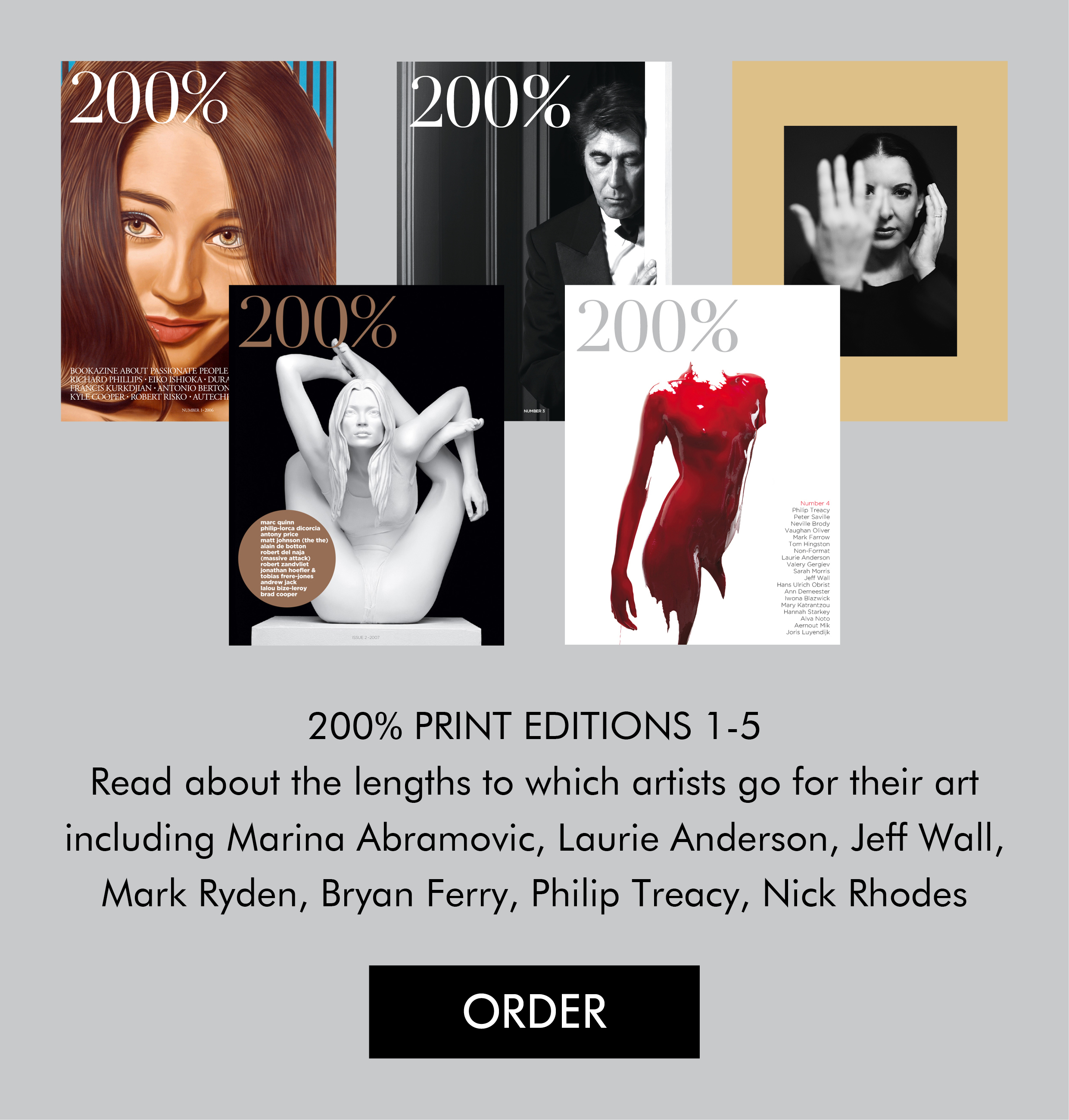
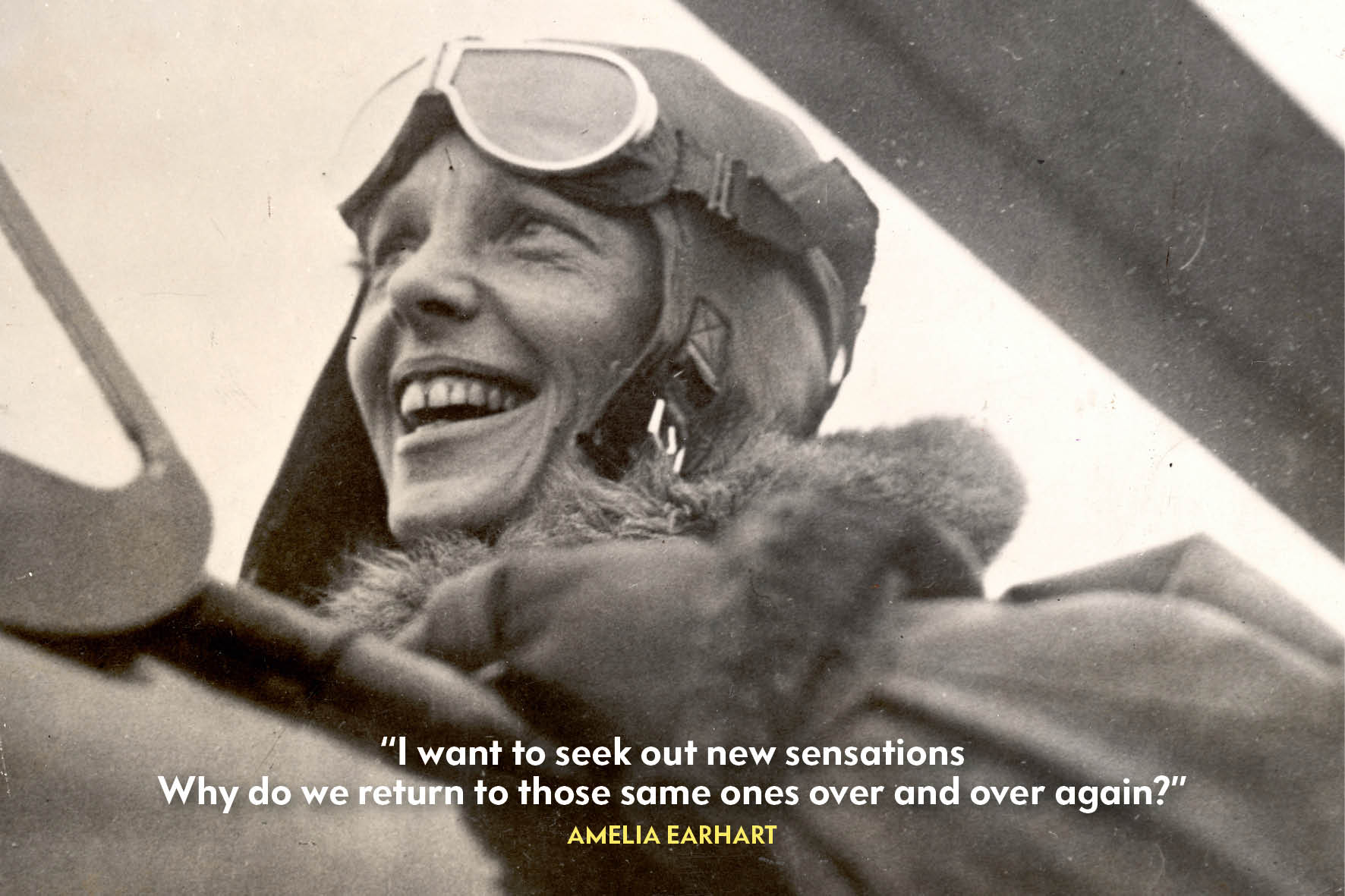
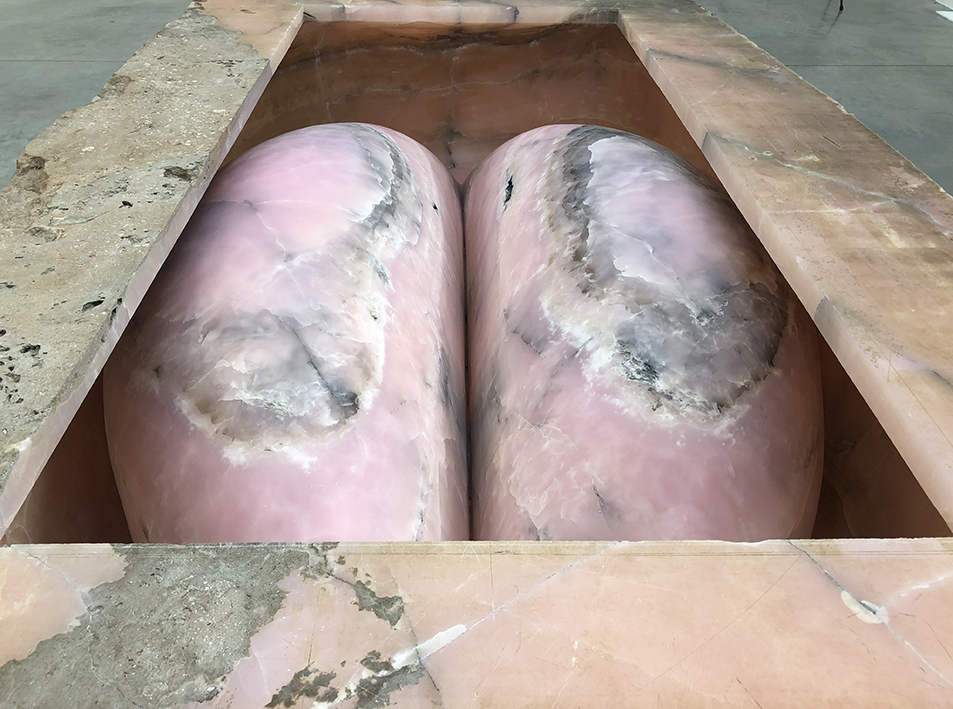
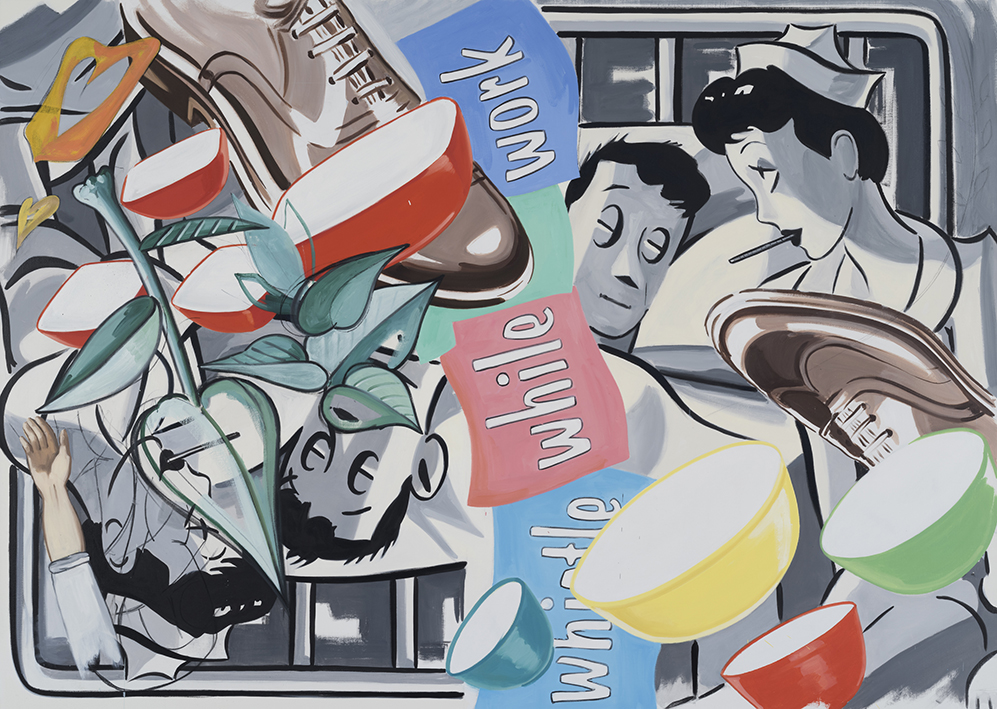
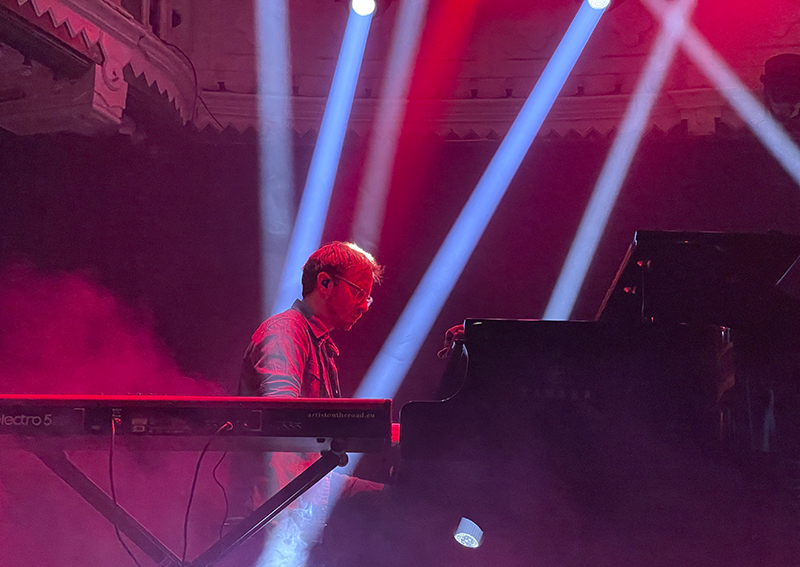
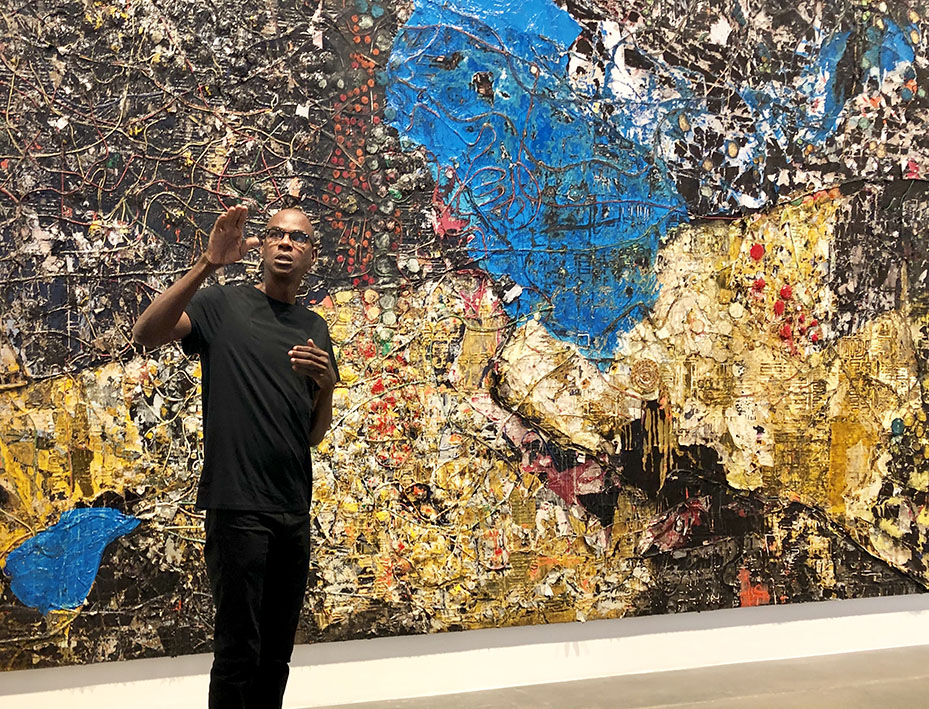
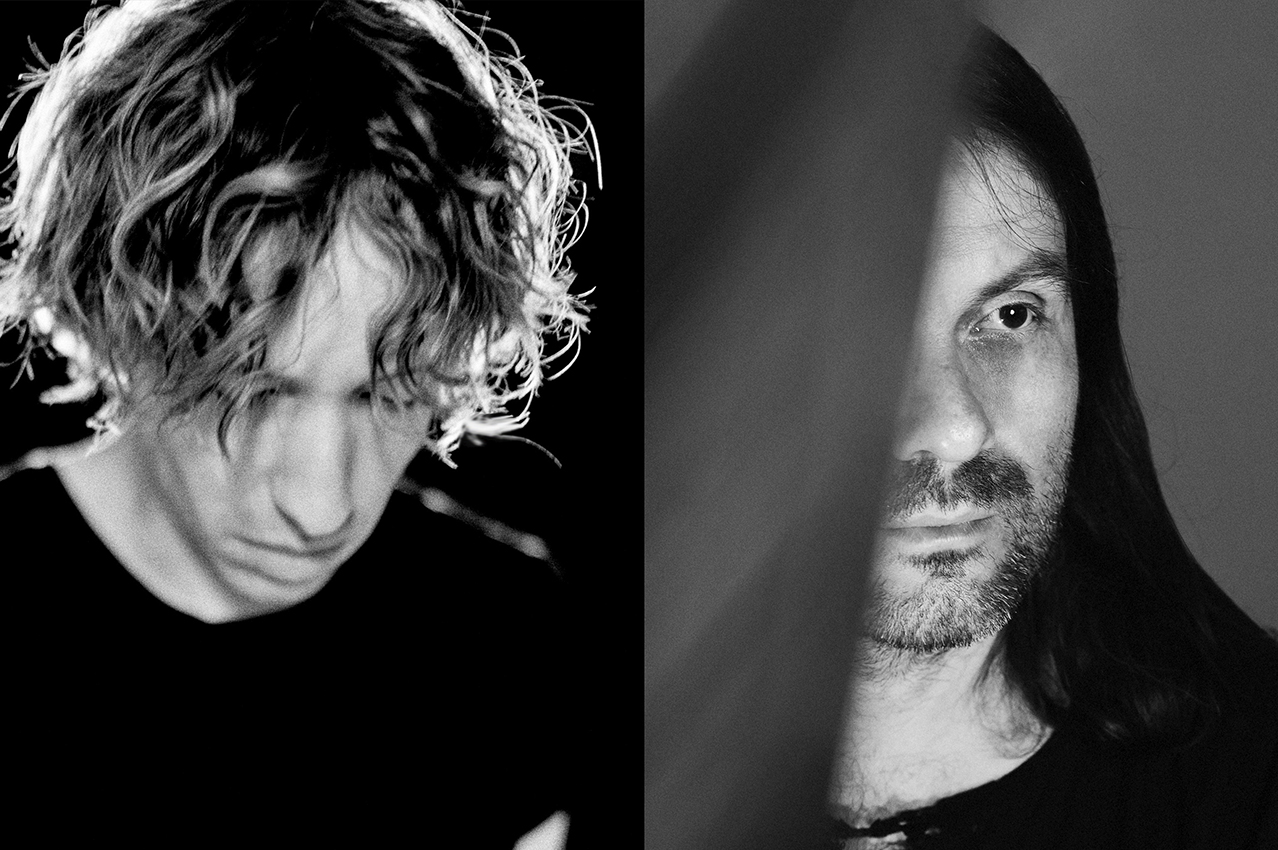
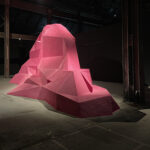

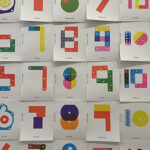
Wonderful interview!